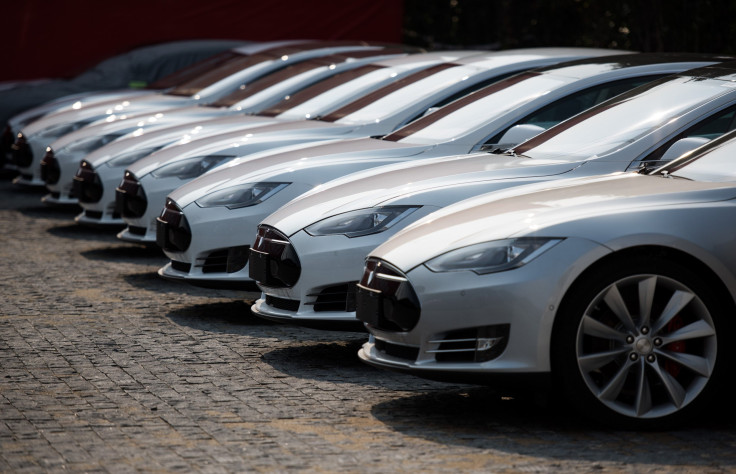Tesla Motors Inc (TSLA) Shares Jump On Speculation Company Could Offer Ride Sharing

All it took was a sprinkle of optimism from investment bank Morgan Stanley to lure investors back to Tesla Motors Inc. (Nasdaq:TSLA). Tesla shares jumped 4.87 percent Monday to $254.99, rebounding considerably from a three-month low Aug. 11 closing price.
The automaker's stock had begun pulling back from its second-highest closing price on record July 20 after Swiss investment bank UBS warned of ways traditional automotive industry challengers might disrupt Tesla’s technology. Now after seeing its stock shed 10 percent of its value since reporting less-than-stellar second quarter results and lower 2014 sales expectations Aug. 4, it seems the exuberance for the Palo Alto electric car company is back.
The stock eked out a slight gain last week after Tesla announced Thursday its plan to raise $642.5 million with the sale of 2.7 million shares. The move is a sign the company is betting investors will shrug off the slight dilution in stock value and continue to support its operations. Tesla CEO Elon Musk plans to purchase $20 million worth of the new shares.
Morgan Stanley’s bullish Tesla analyst Adam Jonas said in a research note Monday the maker of the Model S luxury electric car could be 18 months away from announcing plans to offer an Uber-like service that would see Tesla bypass selling its cars to ride-hailing companies and get into the so-called shared mobility business on its own. This could happen as early as 2018, Jonas said, as the company’s $35,000 Model 3 electric car is being introduced.
If Tesla were to introduce a shared mobility service, Jonas said it would add $244 to the future price of Tesla stock. The bank upgraded the company’s one-year price target to $465, one the highest among the analysts currently tracking Tesla.
Thilo Koslowski, vice president and automotive practice leader at Gartner Inc., said this is certainly something Tesla would be considering just like other global automakers, including Ford Motor and BMW that already are experimenting with shared mobility services in select locations.
“Uber’s success is inspiring a lot visions for other companies and it would make sense for Tesla to do this as well,” Koslowski said. “It would be too early for Tesla to be making decisions like this, however. The company needs to make money in its core business.”
The company is in the midst of rolling out three new models by 2020 -- the Model X, Model 3 and second generation Roadster -- while building the world’s largest single battery “gigafactory” near Reno, Nevada, growing its Tesla Energy power storage business, and fleshing out its global network of charging stations and retail outlets. If Tesla is poised to offer something like Uber, it could also be a distraction of its main goal: to make and sell mass market electric cars, and to offer residential, commercial and grid-scale electricity storage units.
If Tesla is planning to enter the ride-hailing business, it’s being coy about its plans. Uber CEO Travis Kalanick said last month if Tesla makes a viable self-driving car by 2020, he would buy every single one of them. The comment elicited a question from Jonas during the second-quarter earnings conference call earlier this month.
Asked Jonas: “Is this a real business opportunity for Tesla, supplying cars to ride-hailing firms, or does Tesla just cut out the middleman and sell on-demand electric mobility services directly from the company on its own platform?”
Musk replied: “That's an insightful question. ... I don't think I should answer it.”
© Copyright IBTimes 2025. All rights reserved.





















